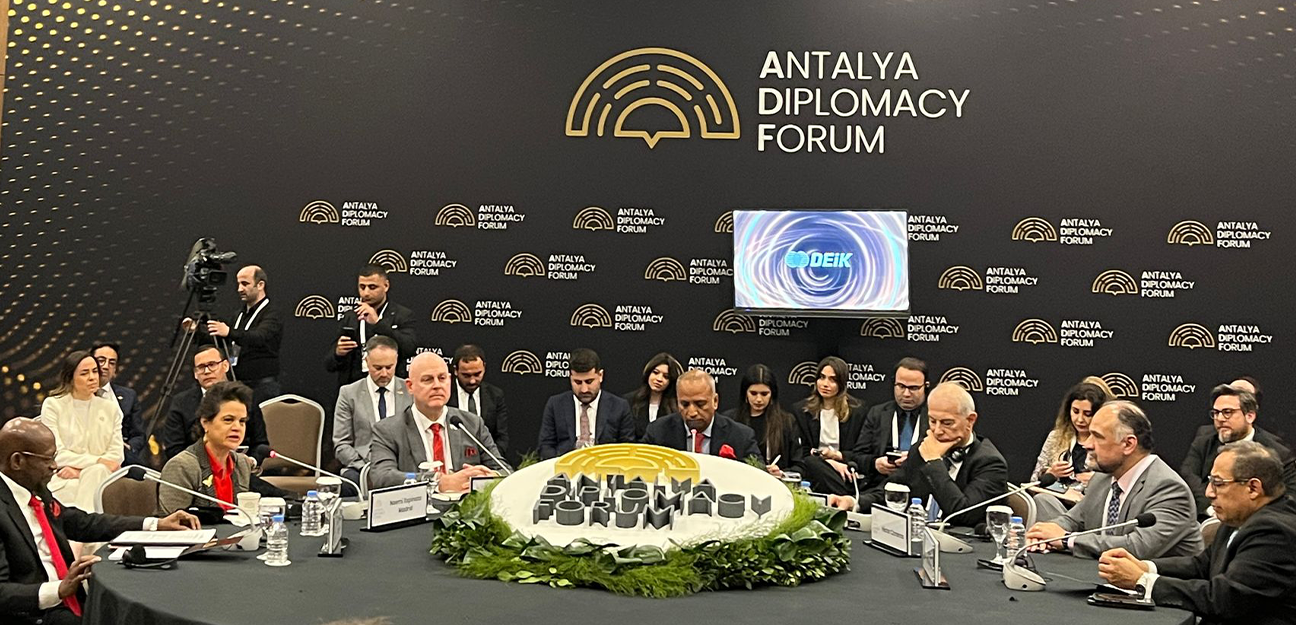ACS Spotlights LAC's Diplomatic Potential at Antalya Diplomacy Forum

Antalya, Türkiye – April 12, 2025 – H.E. Noemí Espinoza Madrid, Secretary-General of the Association of Caribbean States (ACS), participated in the Antalya Diplomacy Forum in Türkiye from April 11-13, 2025, where she shared key perspectives on the Greater Caribbean's strategic potential amid global shifts
During the panel “Regional Perspectives from LAC on Global Economic Partnerships”, the Secretary-General emphasized that the current global context presents not only significant challenges but also an opportunity for Latin America and the Caribbean (LAC) to forge strategic partnerships that enhance resilience and enable sustainable development. The Greater Caribbean, as a zone of peace and a region rich in natural and cultural resources, was highlighted as uniquely positioned to contribute to global solutions.
The Secretary-General emphasized that the current global context presents not only significant challenges but also an opportunity for Latin America and the Caribbean (LAC) to forge strategic partnerships that enhance resilience and enable sustainable development. The Greater Caribbean, as a zone of peace and a region rich in natural and cultural resources, was highlighted as uniquely positioned to contribute to global solutions.
Calling for a rethinking of cooperation frameworks, Espinoza Madrid stressed the importance of placing dignity, sovereignty community, and social justice at the heart of regional priorities. In discussing the European Union’s renewed focus on sustainability, she welcomed the potential for stronger ties but underscored the need for engagement terms aligned with LAC’s realities.
Relations with global powers such as China and the United States were also addressed. The Secretary-General advocated for partnerships grounded in mutual respect and regional sovereignty. Initiatives like the CELAC–China Forum and the Belt and Road Initiative were cited as important platforms for cooperation in infrastructure, digital transformation, and cultural exchange—provided they serve the development priorities of the region.
Regional integration was framed not as an option, but as a political and strategic imperative. Mechanisms such as CELAC, CARICOM, SICA, SELA, and the ACS itself were presented as proof of the region’s capacity for effective cooperation. In this context, the promotion of inclusive growth, the reduction of structural inequalities, and the strengthening of South-South cooperation were identified as urgent priorities.
Concluding her intervention, Espinoza Madrid reaffirmed the ACS’s commitment to diplomacy and multilateralism as essential tools for addressing global challenges through cooperation, solidarity, and shared responsibility.



